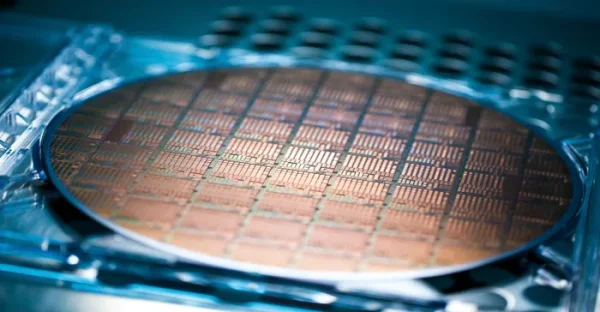
Hardware Hotshots
The world of hardware is constantly buzzing with innovation. From mind-blowing processing power to mind-bending foldable displays, the latest updates are redefining what our devices can do. Let’s dive into some of the hottest hardware advancements and explore how they might impact your tech arsenal.
The CPU Race Heats Up: More Cores, More Power, More Possibilities
Processor manufacturers like AMD and Intel are locked in an epic battle, pushing core counts and clock speeds to ever-greater heights. This translates to smoother multitasking, faster video editing, and a more responsive overall computing experience. Gamers and creative professionals rejoice – the era of lag-free performance is upon us!
Folding Frenzy: From Gimmick to Game Changer?
Foldable phones are no longer a futuristic fantasy. Leading manufacturers are refining their foldable designs, offering larger screen real estate that unfolds to tablet-sized proportions. This technology holds immense potential for multitasking, reading e-books, and consuming media on the go. However, durability concerns and software optimization remain hurdles to overcome before foldables become mainstream.
Graphics That Dazzle: The Rise of Ray Tracing and Upscaling Technologies
The world of graphics is getting a serious upgrade with the introduction of ray tracing and upscaling technologies. Ray tracing simulates how light behaves in the real world, creating stunningly realistic lighting effects in games and other visually demanding applications. Upscaling technologies, on the other hand, take lower-resolution content and intelligently enhance it to appear sharper and more detailed, breathing new life into older games and media.
AI Makes its Hardware Mark: From Smarter Processors to Context-Aware Devices
Artificial intelligence (AI) is no longer confined to software. Hardware manufacturers are integrating AI capabilities directly into processors and other components. This allows for features like context-aware battery management, personalized performance optimization, and even voice-activated device control without the need for an internet connection. The future of hardware seems to be increasingly intelligent and adaptable to our needs.
The Hardware Horizon: What’s Next?
The future of hardware is brimming with exciting possibilities. Flexible displays that roll up, brain-computer interfaces, and even self-healing materials are just a glimpse of what’s on the horizon. These advancements promise to further blur the lines between the physical and digital worlds, creating a seamless and personalized tech experience.
So, How Do You Choose the Right Hardware Upgrade?
With so much innovation happening, deciding on the right hardware upgrade can be overwhelming. Here’s a quick guide:
i. Identify your needs: Are you a gamer seeking peak performance? A creative professional requiring a powerful workstation? Understanding your needs helps narrow down your options.
ii. Consider your budget: Cutting-edge hardware comes at a premium. Balance the latest features with your budget to find the best value proposition.
iii. Research compatibility: Ensure your chosen hardware components are compatible with each other and your existing system.
Stay Curious, Stay Informed!
The hardware landscape is rapidly evolving. Staying informed about the latest advancements allows you to make informed decisions about your next tech upgrade. Who knows, maybe the next hardware innovation will revolutionize the way we interact with technology!
What are you most excited about in the world of hardware? Do you think foldable phones will become mainstream? Share your thoughts and predictions in the comments below! Let’s discuss the future of hardware together!
(FAQs) Hardware Hotshots: Your Burning Questions Answered!
Q: More cores and faster processors sound impressive, but will the average user really notice a difference?
A: It depends on your usage patterns. For everyday tasks like browsing the web or checking email, the difference might be negligible. However, for activities like video editing, gaming, or running demanding software, the performance boost from newer processors can be significant.
Q: Foldable phones sound cool, but are they durable enough for everyday use?
A: Durability is still a concern with foldable phones. While manufacturers are improving their designs, these devices might require extra care compared to traditional smartphones.
Q: Ray tracing sounds fancy, but will it drain my battery life?
A: Yes, ray tracing can be quite demanding on battery life. However, some graphics cards offer features that balance visual quality with performance to optimize battery usage.
Q: AI in hardware sounds futuristic, but what kind of real-world benefits can I expect?
A: AI-powered hardware can lead to features like personalized battery optimization that extends your device’s lifespan or intelligent noise cancellation that adapts to your surroundings.
Q: Brain-computer interfaces and self-healing materials? Is this science fiction or the near future?
A! These advancements are still in their early stages, but they represent the exciting potential of future hardware. While widespread adoption might take some time, these innovations are definitely something to keep an eye on.
Q: So, should I rush out and buy the latest hardware right away?
A! Not necessarily. Consider your needs, budget, and current device’s performance before upgrading. Sometimes, waiting for the next generation or for prices to stabilize can be a wise strategy.

Leave a Reply